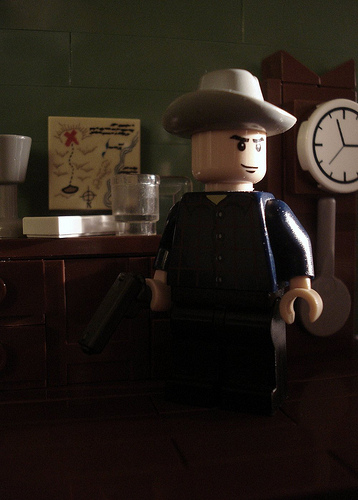It feels as if crime news — think Oscar Pistorius — is more prominent than it’s ever been. Not just where it always rules, in tabloids or all-news radio, but on “serious” outlets like CNN, the New York Times or the CBC — fast becoming the Crime Broadcasting Corporation. There have always been places where journalism retreats in order to escape dull, headscratchy things like politics and economics. These refuges include weather, natural disasters, traffic accidents, celebrities, awards shows — I’d like to see a survey on whether crime tops that list right now.
I used to think people liked those lighter, “escapist” stories because they make sense in a way that coverage of more abstract areas usually doesn’t. You don’t get lost or feel stupid reading about a storm or murder. So the escape was actually into reality, versus the fabulous quality of politics or the economy, where obtuse treatment can make it even harder to grasp what’s happening.
But there’s another crime component in mass media: crime dramas, series, etc., which are rarely comprehensible or “real.” Take The Following, about an evil genius in the mould of Hannibal Lecter who more or less runs the world from his prison cell, recruiting an army that outwits the cops and terrorizes at will. This is pretty much the model on Criminal Minds and elsewhere. Their assumption is oddly similar to that in much political and business coverage: the people in charge know what they’re doing and are good at it.
Fortunately, there’s also Justified, in its fourth season, and the best thing on TV now, in my opinion. It’s based on bits of Elmore Leonard‘s voluminous crime fiction. It’s set in Harlan County, Kentucky (“there are no neutrals there . . .”), where moonshinin’ and family feudin’ still prevail; yet it feels truer than urban stuff like The Following.
Leonard’s brilliance was always his sense that the crooks are random, fallible, as stupid or smart as anyone else — well, maybe a bit stupider; they rarely plan well and when they do it often falls apart because you can’t control the circumstances in which you act. Doesn’t that sound like real life?
There’s also his sense that crooks and cops are playing much the same game though they wear different uniforms. In Justified this emerges in the relationship between U.S. Marshall Raylan Givens and superscammer Boyd Crowder, who’s actually a smart crook but knows most of it won’t work out anyway: which is part of his smarts. They shoot each other but also have each other’s backs, though not usually at the same time.
The series finally gives Leonard’s brilliance with dialogue its due. He’s known as the writer who leaves out “the parts that people skip.” His lines are terse, yet incredibly eloquent; they call out for actors to speak them. He’s not so much writing screenplays, which has been claimed, as he’s in the tradition of drama versus literature.
Those categories are, despite university curriculums, not the same thing. No one since Shakespeare has packed in as much eloquence per word or grunt but it hasn’t come through in most films made from his books. Perhaps it’s the series form that works, or the setting, rural Kentucky: largely illiterate but where, for that reason, the oral tradition still thrives. Or maybe he just lucked out with these actors. It’s nice it happened since he’s 87 and got to see it (along with working on the show, and still producing novels).
It’s also part of TV’s revival, just when it was supposed to die. Everyone now agrees that TV is cool, says John Doyle. I know 14-year-olds who follow shows, from sitcoms to crime series. It’s related to the demise of appointment TV, which was expected to be a lethal blow but instead probably saved TV. You can see your shows even when you miss the appointment. You can cuddle up with them on your device as you would with a book.
In fact, the series form handles novels far better than film does. That’s long been clear but somehow wasn’t obvious till now. It’s true you lose TV as the communal altar where everyone gathers, which marked appointment TV. But hey, win some, lose some.
This article was first published in the Toronto Star.
Photo: Alex Eylar/Flickr




